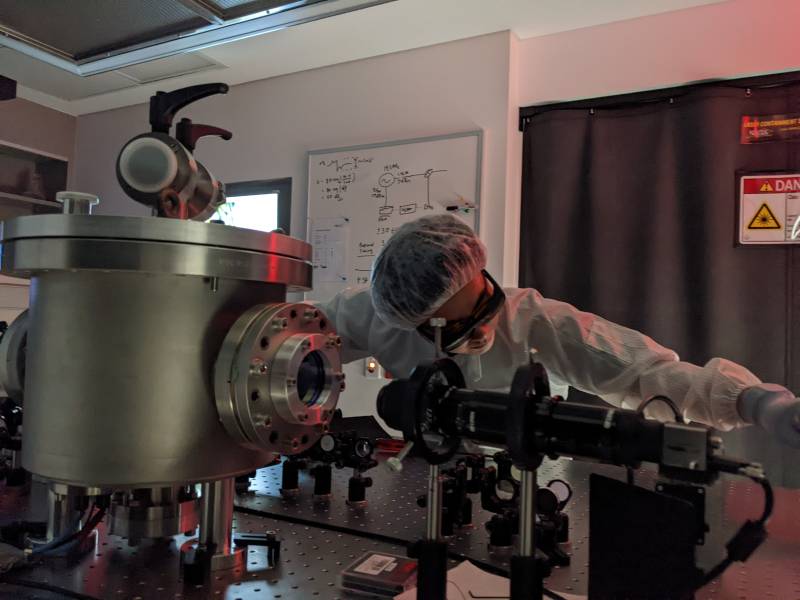Higher Degree by Research Application Portal
| Title | Optical Springs and Optomechanical Interactions for beating the quantum limit in gravitational wave detectors |
|---|---|
| Supervisor | Prof Li Ju |
| Keywords | optomechanics |
| precision measurement | |
| quantum limit | |
| Categories | Experimental Physics |
| Research area | Physical Sciences |
| Project description | The gravitational wave instrumentation group at the University of Western Australia (UWA) is looking for highly motivated students to join our research and apply for the PhD scholarship. Our UWA team is part of the LIGO Scientific Collaboration and contributed technologies toward the detection of gravitational waves. We are also part of the Australian Research Council Centre of Excellence for Gravitational Wave Discovery. We develop techniques for the current and future GW detectors. One of the key research topics is the optomechanical interactions for whitelight cavities. At the UWA campus class 100 cleanroom lab, various optomechanical systems are being developed to test the strength of the optomechanical interaction between the laser radiation pressure and the mechanical resonators for applications towards beating the standard quantum limit in GW detectors. |
| Opportunity status | Open |
| Open date | 01 Apr 2025 |
| Close date | 31 Aug 2026 |
| School | School of Physics, Mathematics and Computing |
| Contact | |
| Course type | Doctorates |
| Duration | 4 years |
Guidance
The current scholarship open date can be found here.
Other out of cycle scholarship schemes may be available.
Students intending to undertake a dissertation or thesis as part of a Higher Degree by Research (HDR) course at The University of Western Australia, are required to have acquired adequate research preparation, prior to being admitted into a course.
The University's Adequate Research Preparation Policy (UP11/25) details this requirement.
The policy broadly states:
- An applicant is normally considered to have fulfilled the requirements for admission to a HDR course if they can demonstrate that they have undertaken supervised individual research in which they have designed and conducted a scholarly investigation in the context of an existing body of knowledge.
- In exceptional circumstances, consideration may be given to applicants whose qualifications do not meet the definitions of adequate research preparation outlined in the policy (clause 4.1), where the school/supervisor believes that the applicant is likely to succeed in the course. In these circumstances, admission may be granted to a Masters Degree by Research in the first instance.
A PhD must be completed within 3 - 4 years.
Our PhD graduates have a wide range of career paths.
- Academics in universities and gravitational wave observatories around the world
- R & D team in industry and technology development companies
- Consultants in financial companies
